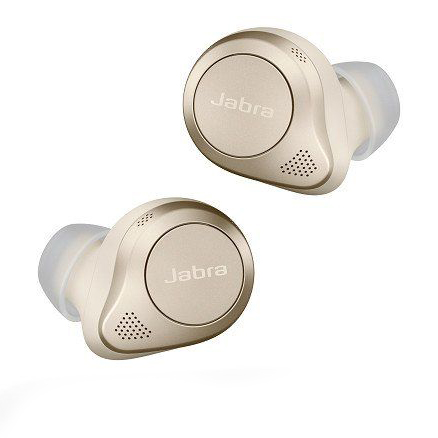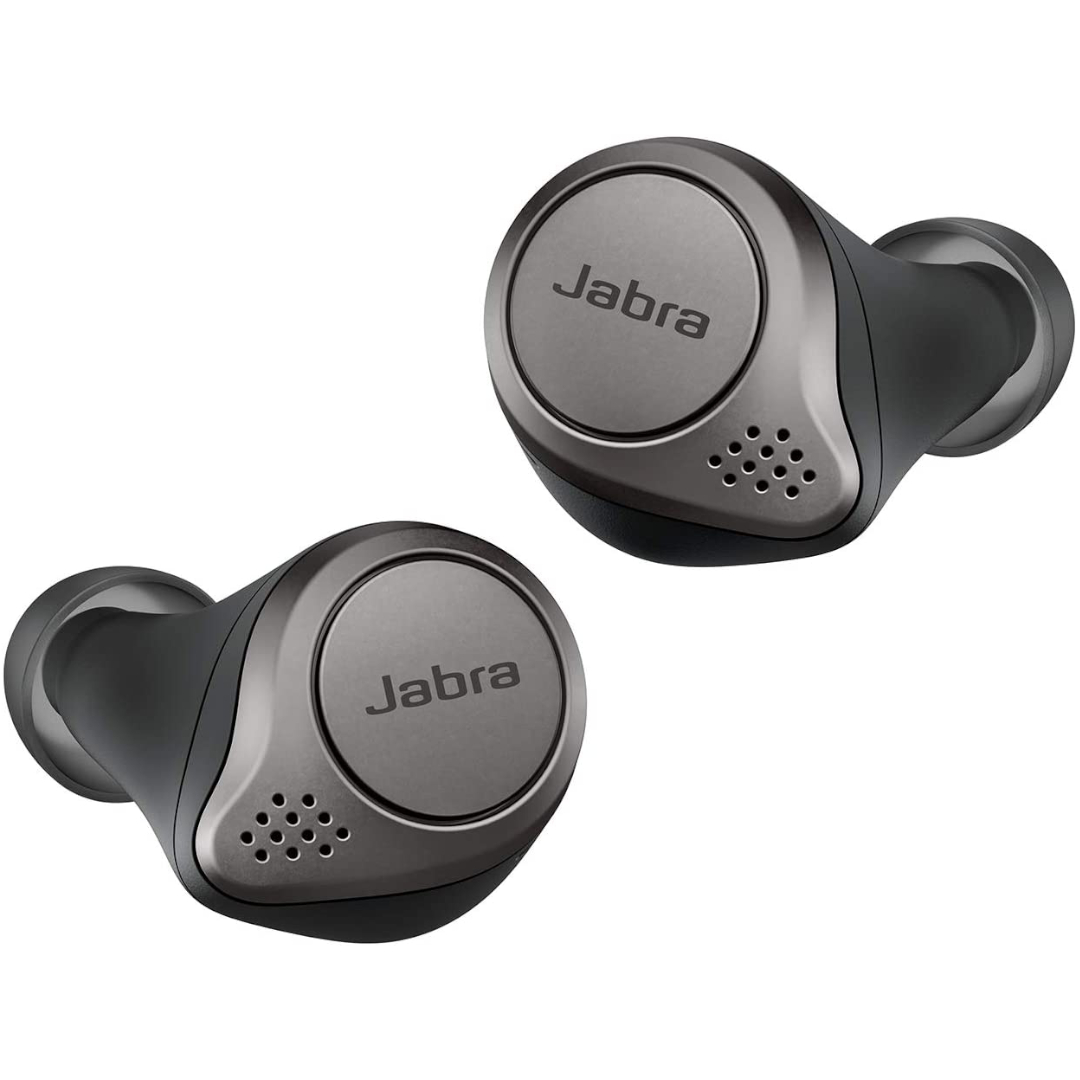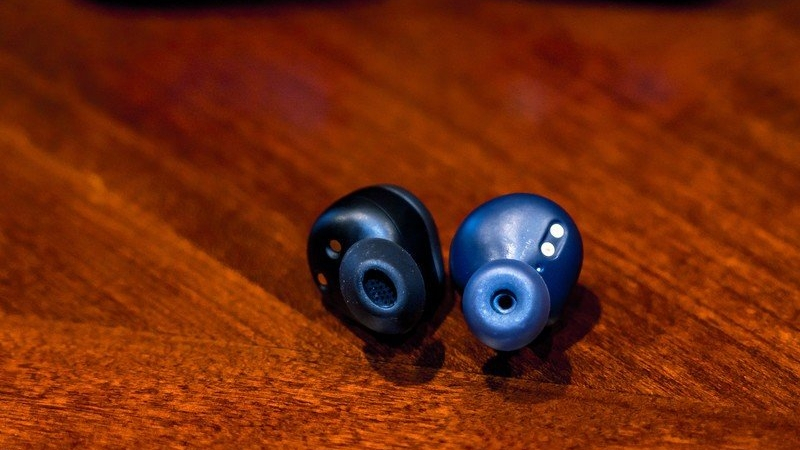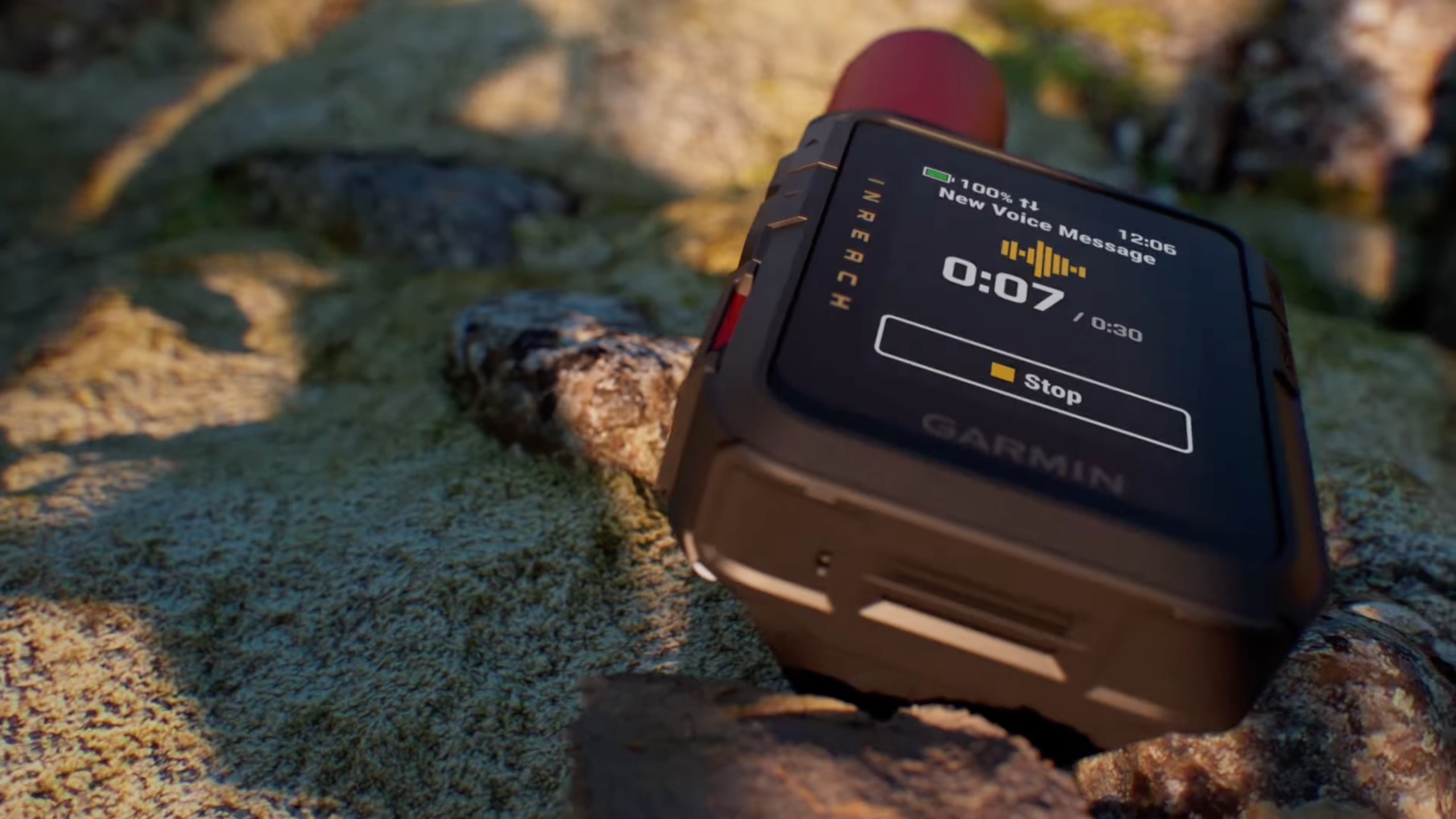Jabra Elite 85t vs. Elite 75t: Which should you buy?

Can do it all
Jabra had a tough act to follow with the excellent Elite 75t, but the Elite 85t take things to another level by adding on previously missing features. They also sport improvements in some key areas that make them easy contenders for the best true wireless earbuds. You're looking at a capable pair of earbuds that can do just about everything.
Pros
- Hybrid ANC
- Great sound quality
- Better call quality than Elite 75t
- Comfortable fit
- Responsive controls
- Wireless charging case
Cons
- Larger frame
- More proprietary ear tips
- Taller and heavier case

Still great
The Elite 75t may be discontinued, but if you spot them on sale, they're still relevant today. They retain the same qualities that put them at the head of the line in front of all others, and Jabra issued a firmware update bringing in active noise cancellation (ANC) to an impressive package that already delivers plenty for the price.
Pros
- Great sound quality
- Smaller frame, comfortable fit
- ANC support through firmware
- Smaller charging case
- Maintains great app support
- Less expensive
Cons
- Fewer charges from case compared to Elite 85t
- No wireless charging
- Call quality is not quite as good
Jabra maintains both its functional pedigree and penchant for taking a great product and making it better with the next iteration of its Elite earbuds. It's always an enviable position to be in for any company, but the real winners are those who actually use these earbuds. The Elite 75t have already proven their worth, except they now have something newer to contend with. How much of a difference does a year make? Let's see.
Jabra Elite 85t vs. Elite 75t: Following a similar path — mostly

When Jabra developed the Elite 75t, it had reduced them in size by 22% compared to the previous Elite 65t. However, things shifted in the other direction with the Elite 85t, ostensibly to accommodate the extra hardware inside facilitating their new features.
Our reviewer, who tested both sets of buds, found that the newer 85t earbuds "took some getting used to," as the buds protrude from your ears more noticeably and weigh slightly more, making them slightly more likely to fall out of your ears. On the other hand, the smaller 75t were designed for passive noise cancellation, which means they feel more "stuffy" than the 85t.
| Header Cell - Column 0 | Jabra Elite 85t | Jabra Elite 75t |
|---|---|---|
| Durability | IPX4 | IP55 |
| Bud battery life | 7 hours | 7.5 hours |
| Charging case battery life | 24 hours | 20.5 hours |
| Wireless charging case | Yes | No |
| Connectivity | Bluetooth 5.0 | Bluetooth 5.0 |
| Digital assistant support | Google Assistant, Siri | Alexa, Google Assistant, Siri |
| Supported audio codecs | SBC, AAC | SBC, AAC |
| Speaker size | 12mm drivers | 6mm drivers |
| Active noise cancellation | Yes | Yes (digital only) |
The Elite 85t are actually less dust- and water-resistant than the Elite 75t. It's surprising, but also all but confirms Jabra will release an "Active" variant for the Elite 85t in the coming months. It's done so for the last two iterations, so why stop now? The IPX4 rating means Jabra's newest earbuds can withstand water splashes, though the "X" means they were never tested for dust-resistance. The Elite 75t hold an IP55 rating that offers decent protection from both. You should be fine using either pair for modest workouts, but definitely don't submerge them in water.
There are other positives for the Elite 85t. Jabra finally gave the case wireless charging capability, making it even easier and more convenient to charge without having to plug in all the time. It also greatly increased sound and call quality, which we'll talk about in the next section.
However, battery life is marginally shorter. It's rated at seven hours instead of 7.5 hours on the Elite 75t, although Jabra rates it at 5.5 hours with ANC on. The company doesn't state what it is for the Elite 75t when the new ANC feature is on when listening to those, so it's unclear how much of a gap there really is. Curiously, Jabra also dropped Amazon Alexa from the newest earbuds. The integration never really felt polished, so it's not a total loss. Google Assistant works better for Android phones anyway, and Apple users can always use Siri.
Jabra Elite 85t vs. Elite 75t: Sounding off on each other

The Elite 85t have 12mm drivers, which is a big deal juxtaposed to the smaller drivers in the Elite 75t. Our 85t reviewer wrote that they "sound significantly better than their predecessors" with a "wider soundstage and more accurate bass, though the equalization has also been tuned by default to offset some of the 75t's boomier tendencies."
Get the latest news from Android Central, your trusted companion in the world of Android
Mid-range sounds like vocals and instruments are "more prominent," and they lose the noticeable "sibilance" with the 75t buds. In other words, you'll really enjoy the larger drivers enabled by the bigger design, even if it's not as comfortable as the older models.
You also benefit from MySound+, an EQ tool with presets for different situations and great tuning tools to get the perfect sound for you, saved as a customized preset.
It's also important to note Jabra changed the design for the speakers to open things up for the larger drivers. They're now oval-shaped, which also changes what kind of ear tips they work with. The tips are still silicone, though with a mesh center. It's unclear whether that alters the sound in any way, but it does somewhat shift the way these earbuds fit.
The Elite 75t were the best true wireless earbuds Jabra made as far as the fit was concerned. Small, snug and with nary a sign of discomfort most of the time, they were almost a revelation for the company. I'm not sure the same is true of the Elite 85t because their size is more in line with the Elite 65. Those were also great earbuds, except their larger size didn't make them as nimble as some competitors. After launching the 85t, Jabra tried to address comfort with new firmware that brought the MyFit feature to the Sound+ app. Basically, the app plays a short audio clip that looks for sound leakage, thereby suggesting a fit adjustment or a different ear tip.
It's also important to note Jabra changed the design for the speakers to open things up for the larger drivers.
You may be able to forgive the size disparity when you notice the difference in ANC performance. The Elite 85t hold a distinct advantage of the hybrid ANC, meaning the internal and external mics work together to cancel outside noise. It handles low- and higher-frequency noises better because of it. It's also adjustable through a slider on the app, in case you want to mitigate the effect. You can still access the HearThrough mode to pipe in background sound when you need to.
The Elite 75t weren't built with ANC at launch, so they have no internal mics; the 75t ANC update only worked with the external mics, which handle low-frequency sounds like a plane, car, or fan very well. They'll have a tougher time handling higher-pitch variances. And while you can adjust the effect, it's not through the same slider on the app. You have to go through Settings > Personalize your headset > Active Noise Cancellation.
The aforementioned firmware update also added a feature Jabra had bafflingly omitted when it first released the Elite 85t. Initially, you could only cycle between ANC and HearThrough when pressing the left earbud, but after the update, you also get a third option to turn both off. We think it's great Jabra rectified that and put it in line with the Elite 75t that way.
As per usual, you do get some color options. The Elite 85t come in titanium black, gold beige, copper black, black, and gray. The Elite 75t come in black, titanium black and gold beige.
Jabra Elite 85t vs. Elite 75t: Which pair should you choose?
There's no question the Elite 85t are an upgrade from their predecessors in more than just one metric. They sound a little bolder, the ANC is more effective, and you get things like wireless charging and improved call quality. You do sacrifice some size and IP protection to get there, but those can be acceptable compromises if they won't affect you much. If they do, you can try the Elite 7 Pro as an alternative, which we consider the best wireless earbuds available today.
Because they're discontinued, the still-excellent Elite 75t will prove hard to find, and may end up costing you as much as the Elite 85t unless you buy them refurbished — which we don't recommend. They used to be on our list of favorites, but the benefits of the 85t make it worth the upgrade these days. As our reviewer put it, even if he's "not quite as enamored of the Elite 85t as I was of the 75t," he planned to keep using the 85t due to the upgrades to comfort, sound quality, and ANC.

Heavier hitters
The Elite 85t are Jabra's way of adding features that were otherwise missing, and they get the performance just right in many respects.

Nimble and flexible
The Elite 75t are now a legacy pair of earbuds, but it's one that will still resonate for some time, given how good they are.

Ted Kritsonis loves taking photos when the opportunity arises, be it on a camera or smartphone. Beyond sports and world history, you can find him tinkering with gadgets or enjoying a cigar. Often times, that will be with a pair of headphones or earbuds playing tunes. When he's not testing something, he's working on the next episode of his podcast, Tednologic.
